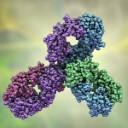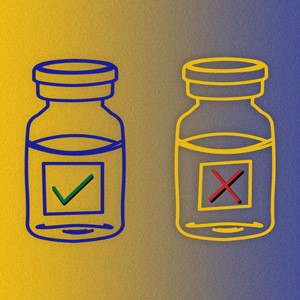-
A Closer Look at Sarcopenia
Gastrointestinal oncologist and health services researcher Ryan Nipp discusses new research about how muscle quality correlates with cancer outcomes.
by Ashley P. Taylor
-
May 28: The Week in Cancer News
A study finds that many people with solid tumors mount an antibody response following COVID-19 vaccination, and the Food and Drug Administration approves the first targeted therapy for a rare lung cancer subtype.
by Kate Yandell
-
Genetic Testing Gaps
Testing for hereditary mutations is increasingly recommended for people with cancer, but recommendations do not always translate into access to testing and appropriate counseling.
by Kate Yandell
-
May 21: The Week in Cancer News
The U.S. Preventive Services Task Force lowers its recommended age to begin colorectal cancer screening to 45, and a major multiple myeloma study begins in Iceland.
by Bradley Jones
-
May 14: The Week in Cancer News
Researchers report disappointing results about ovarian cancer screening, and cancer patients with impaired immune function feel uncertain about protection offered by COVID-19 vaccination.
by Marci A. Landsmann
-
Rethinking Access to Disability Benefits
Advances in screening and treatment mean there are more cancer survivors than ever, but survivors who struggle to work can face difficulty getting disability payments.
by Jen Tota McGivney
-
Expanding Immunotherapy
At a patient advocate event, researchers discussed how to extend the benefits of immunotherapy to more people.
by Kevin McLaughlin
-
May 7: The Week in Cancer News
A Food and Drug Administration panel recommends withdrawing approvals for two treatment indications for immunotherapy drugs, and the U.S. Preventive Services Task Force recommend against vitamin E and beta-carotene for cancer prevention.
by Kevin McLaughlin
-
Should All Kids With Cancer Get Genetic Testing?
Testing children with cancer for hereditary mutations could impact their treatment and provide information relevant to other family members.
by Marcus A. Banks
Cancer Talk
Immunotherapy for Early-stage Gastric Cancer
‘Practice-changing’ research shows adding immunotherapy before and after surgery reduced recurrences for early-stage gastric cancer.
by Laura Gesualdi Gilmore
Physical Activity Linked to Lower Colon Cancer RecurrenceParticipating in a structured exercise program after treatment was associated with a reduced risk of recurrence in people who had colon cancer.
by Sandra Gordon
Gaps in Survivorship Care Leave Unmet Needs After Cancer TreatmentA survey of head and neck cancer survivors reveals that many are not getting adequate survivorship care and may not even know it is available.
by Cameron Walker
Improving Communication for Deaf Cancer PatientsAfter a cancer diagnosis, people who are deaf or have hearing problems can struggle if accommodations don’t meet their communication needs.
by Eric Fitzsimmons













